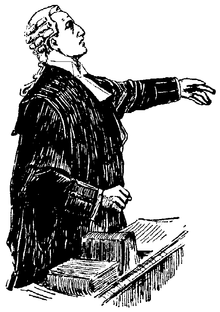Says today's Times - Expenses MP Jim Devine says he was told ‘to move money around’ - Times Online
Plus the letters page has some correspondents crying out for impeachment and attainder:Criminal courts or trial by Parliament for errant MPs? -Times Online
Firstly someone should tell Mr Cameron that Article 7 European Convention on Human Rights says - No one shall be held guilty of any criminal offence on account of any act or omission which did not constitute a criminal offence under national or international law at the time when it was committed.
So Parliament probably can't retrospectively take away a defence such as Article IX Bill of Rights, which (arguably) had the effect of preventing an offence being committed/prosecuted at the time of its alleged commission.
As to impeachment and attainder - attainder would seem a little over the top - last used in 1798, it involves a Bill being passed by both Houses of Parliament forfeiting the property and rights of inheritance of a wrong doer (usually reserved for high treason although it could be used for lesser offences).
Impeachment was last used in 1806 (an allegation of misappropriating money from the Admiralty - Viscount Melville was acquitted) and can be used by any MP to accuse a person of wrong doing. A motion and evidence is voted on by the Commons and if passed Black Rod arrests the accused and the trial takes place in the Lords. The Lords are the jury and the Commons the prosecution (we are no longer sure who the Judge is given that the Lord Chancellor no longer presides over the Lords - and indeed is no longer neither a Lord or necessarily a properly qualified lawyer). The Lords then pass judgment (by simple majority vote) which can include penalties such as imprisonment and fines.
There was an attempt in 2004 to impeach Tony Blair and the then leader of the House, Peter Hain said that impeachment was obsolete, This did not appear to be the opinion of the authorities of the House of Commons at the time and furthermore I am not sure by what legal mechanism (short of repeal by statute) impeachment could become obsolete. Laws in England and Wales do not become obsolete through lack of use (desuetude) (see Ashford v. Thornton (1818) 1 B.& ALD 405 - where the Court says that law remains until repealed). In that case the Court granted the ancient right of trial by combat which was abolished the next year by Parliament - now that would be an interesting way of settling the MPs' expenses prosecution - Jim Devine in the Red Corner - Keir Starmer in the blue........ ....


No comments:
Post a Comment